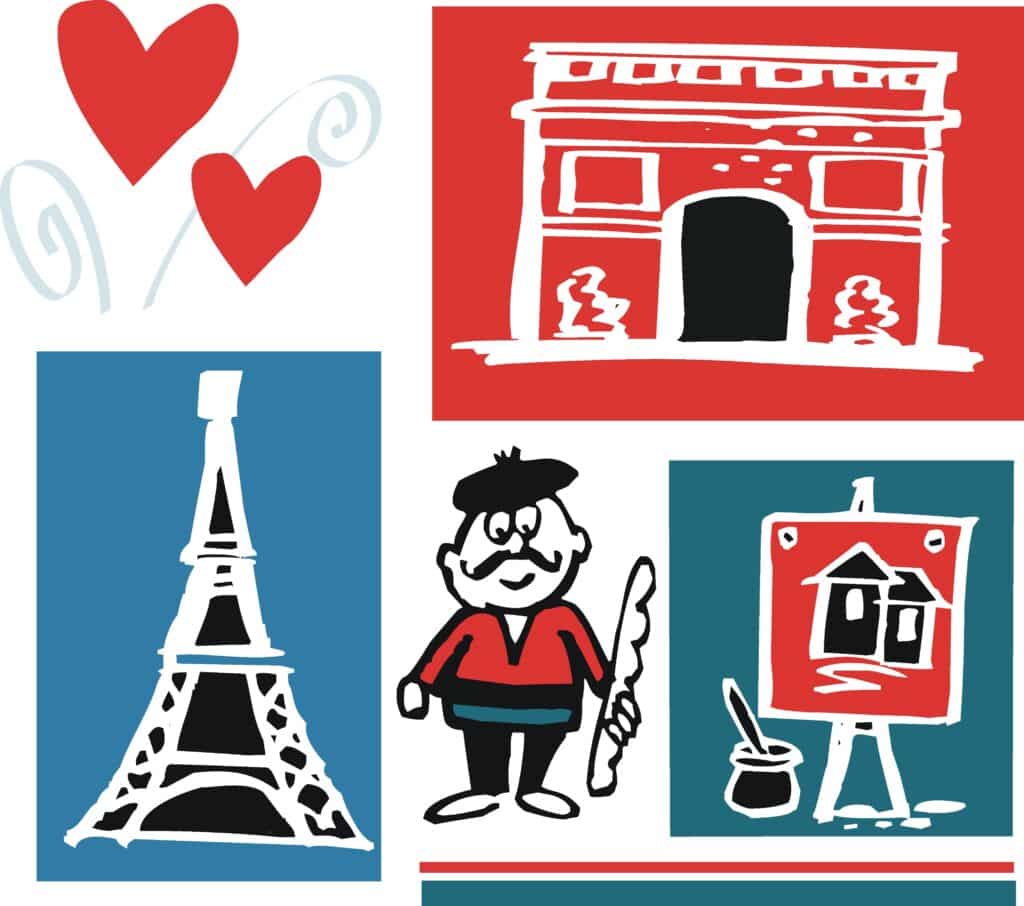As you’ll probably have guessed from the title, we’re going to look at pairs of words that are used together in a fixed order, separated either by ‘and’ or ‘or’. Some of these word pairs are simply two things that we use or experience together, such as ‘knife and fork’ and ‘thunder and lightning’. Others are more idiomatic, their meanings not always obvious, for example bits and pieces (=small things or tasks of different types) and short and sweet (=surprisingly quick). The English language is full of these short phrases and this post aims to give you a useful selection of them. As ever, we focus only on items in current use.
Let’s start with the first type – things that logically come together. The ‘which comes first?’ rule for these pairs is generally that the bigger or more important of the two items comes first, (though it’s not always possible to say which this is): bread and butter; tables and chairs; shirt and tie; cup and saucer; name and address; hot and cold; rich and famous; win or lose.
Now let’s focus on a set of frequently used adjective pairs, most of which are at least partly idiomatic. In spoken English, if you are sick and tired of something or someone, you are annoyed because you have experienced too much of them:
I do all the work in this house and I’m sick and tired of it.
Something that is rough and ready has been produced quickly and is therefore quite basic:
The program is still in development so it’s a bit rough and ready.
Similarly, a calculation or other method which is quick and dirty has been done quickly and slightly carelessly and is often just a temporary solution.
I’ve done a few sums – they’re quick and dirty but quite revealing.
Cut and dried, meanwhile, means ‘already decided and unlikely to change’:
I wouldn’t like to predict who will win the competition – it’s by no means cut and dried.
There are also some very frequent idiomatic verb pairs that are worth learning.
If you chop and change, you keep changing from one thing to a different thing:
We need to decide on a course of action – we can’t keep chopping and changing.
In a new situation, if you are left to sink or swim, you are given no help so that you succeed or fail by your own efforts:
There was no one there to ask for help – it was basically sink or swim.
Something that (informal) crashes and burns, suddenly and completely fails:
In this business, products can crash and burn.
source: dictionaryblog.cambridge.org
Can you finish the expressions with the appropriate word?
knife and ….. |
thunder and ….. |
bits and ….. |
short and ….. |
bread and ….. |
tables and ….. |
shirt and ….. |
cup and ….. |
name and ….. |
hot and ….. |
rich and ….. |
win or ….. |
sick and ….. |
rough and ….. |
quick and ….. |
cut and ….. |
chop and ….. |
sink or ….. |
crash and ….. |
Key
knife and fork |
thunder and lightning |
bits and pieces |
short and sweet |
bread and butter |
tables and chairs |
shirt and tie |
cup and saucer |
name and address |
hot and cold |
rich and famous |
win or lose |
sick and tired |
rough and ready |
quick and dirty |
cut and dried |
chop and change |
sink or swim |
crash and burn |
Vocabulary
knife and fork | kés és villa |
thunder and lightning | dörgés és villámlás |
bits and pieces | apró-cseprő dolgok |
short and sweet | meglepően gyors, lényegretörő |
bread and butter | vajaskenyér |
tables and chairs | asztalok és székek |
shirt and tie | ing és nyakkendő |
cup and saucer | csésze és csészealj |
name and address | név és cím |
hot and cold | meleg és hideg |
rich and famous | gazdag és híres |
win or lose | győzni vagy veszíteni |
sick and tired of | tisztára elege van belőle |
rough and ready | elnagyolt, gyorsan összecsapott, hamar (munka) |
quick and dirty | gyors és mocskos |
cut and dried | eldöntött, teljesen kész |
chop and change | csapongani, állandóan véleményt változtatni |
sink or swim | vagy megszokik, vagy megszökik |
crash and burn | hirtelen dugába dől, kudarcot vall |







